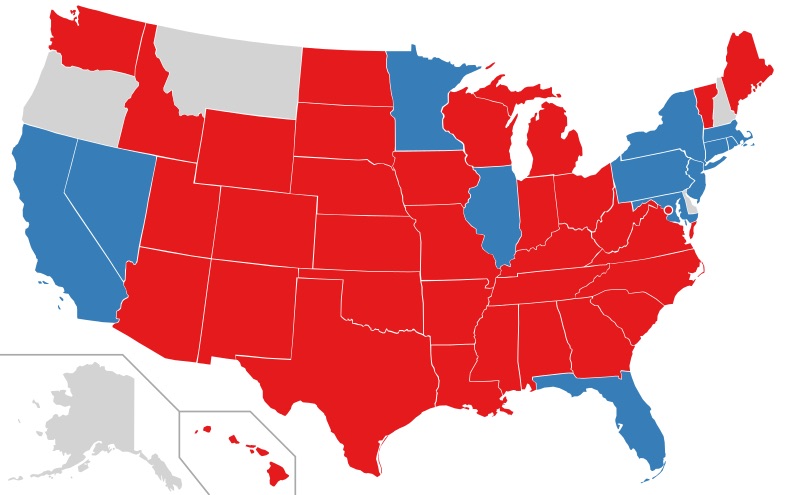The Bloody Truth
Swapping Period Stigma for Understanding in Society

The idea of getting my period terrified me. And once I got it, it was even more frightening. But the thing is, all I wanted to do is shout it from the rooftops. I wanted to talk about it, see if other girls were feeling the same way, or if they weren’t, what they were feeling. And yet, when I got to school, I immediately felt uncomfortable. My only goal became making sure that nobody knew I was on my period, that I didn’t bleed through my pants, that I didn’t let my cramps bother me.
Over time, I started to let my guard down and chat about it with my friends, but I knew they were feeling the same restraints I was. So I just didn’t talk about it. I would stuff a pad up my sleeve and run to the bathroom, feel sad and tired and blame it on myself, not the natural hormone changes happening.
Finally, shoving all this down inside me became too much. I became angry when I got my period, angry my body was doing this to me, angry I couldn’t control it or do anything to stop it, angry that I felt I was going through this alone. But mostly, I was angry at myself for not experiencing this without shame. So then, I did. I keep researching, reading, learning, talking, and writing about this before I realized I needed to live up to my own advice and share my message on a broader scale.
So what is period stigma? Period stigma is, in short, a widely believed and incorrect bias against menstruation and believing that females should menstruate in private because it is “gross.” This is not a sudden concept. The idea that periods were shameful, impure, and wrong has been passed down from generation to generation. It was only until the late ‘70s that ibuprofen was introduced to the public as a pain reliever, including pain experienced during menstruation. Before that, it was widely believed that pain with periods was purely in women’s heads.
And now here we are — 2020. We have made immeasurable, amazing progress in just the last few decades, and yet periods are still taboo. Periods are marketed as a weakness to women — that it makes them irrational and unpredictable. And when a female does show excessive feelings, it’s dismissed as “just her time of the month”. The thing about that discriminatory catchphrase, though, is that it’s not only offensive but completely incorrect. Menstruating isn’t just a week, it’s a month-long cycle that happens every month. Hormones dip and peak as the body prepares for pregnancy and then deals with the fall out of that not happening. The consequences of a cycle’s timeline are different for each woman, so it’s never just a woman’s “time of the month.” Her menstrual cycle is constant and ever-changing.
And though girls in our community experience the effects of period stigma, it also stretches further. Across the world, certain cultures and communities shun the very idea of menstruation. Here, we are only enduring a small fraction of the fearful apprehension around periods. In certain parts of the world, women are secluded from the rest of their society until they have completed their period. In other cultures, women are banned to wait out their cycle in menstrual huts, or red tents. This large-scale cultural apprehension to periods affects girl’s daily lives, wellbeing and makes access to menstrual products extremely difficult.
We may not have red tents, but we still have work to do. In the United States, the stigma, cultural repression of periods, and generational constructs of periods have all filtered politically into the Tampon Tax. The Tampon Tax works no differently than any other sales tax, but the message it sends is different. Having a sales tax then categorizes a product as a non-essential, luxury item. A luxury, not a necessity. This is proof that periods are marginalized and dismissed on a broader scale. This tax limits availability to menstrual products for women in need. The Tampon Tax is unfair and unjust. Access to menstrual products and having them tax-free is not a privilege – it is a right.
The good news is there are leaders working against this sexist policy and have succeeded in eliminating the tax in 18 states. But there are still 32 states that tax menstrual products as luxury items.
The best way to become involved in diminishing period stigma is to be educated. The more you know and understand about what is happening to your own body, and the body of your family and loved ones, the more comfortable and prepared you will be.
But most importantly, make a change for yourself. The next time you have cramps, don’t feel the need to suffer silently. Don’t blame yourself for mood swings or feeling overly tired, know that your body is doing what it is supposed to. This is a normal bodily function, let’s treat it that way.
We need to change the perception of periods. Periods mean you can support life; it should not be used negatively against women.
Menstruating is not gross or unpure. But periods are uncontrollable. So let’s embrace them, be comfortable with them. Menstruate without fear of embarrassment. Let’s make our period experience, and then for generations to come, an empowered one.
Madeleine Nicks is a sophomore at Laguna Blanca and presented this piece during the school’s TedX talks.



